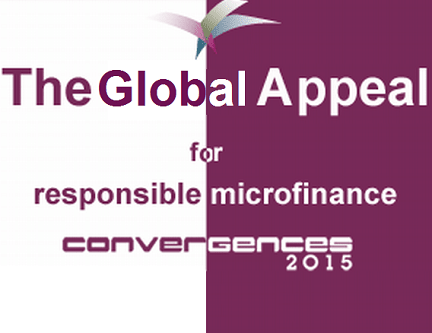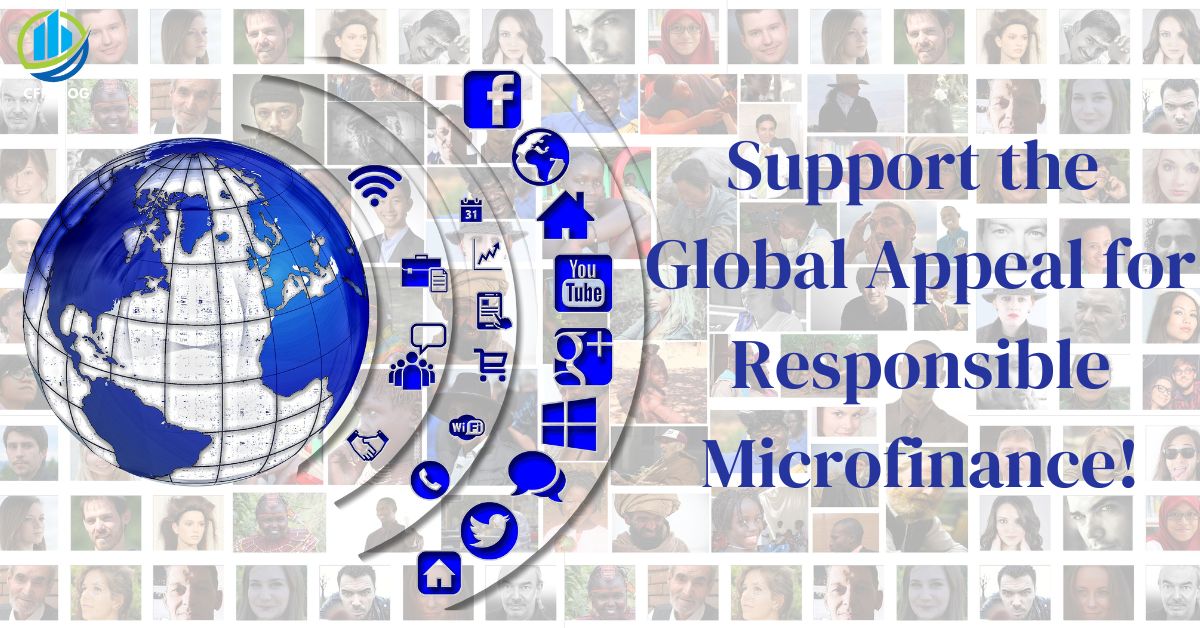Microfinance institutions came with the main intention of helping people by providing them with microloans. But slowly, due to a lack of proper regulation and legal framework, they started offering predatory services to the clients.
To deal with this, the “Global Appeal for Responsible Microfinance” was introduced during the Convergences 2015 World Forum in Paris. The main aim of this appeal is to ensure client protection. This appeal compels all microfinance institutes to follow industry guidelines and regulations.
In this article, we are going to tell you about the global appeal for responsible microfinance and why there is a need to support the global appeal for responsible microfinance. So are you ready to know about it, let’s get started!
What is Global Appeal for Responsible Microfinance?

Global Appeal for Responsible Microfinance (GARM) is an initiative that aims to promote responsible practices in the microfinance industry. This document was launched by two major organizations, the Microfinance CEO working group and the Convergence 2015, and some other groups of microfinance stakeholders including investors, microfinance institutions, and social performance rating agencies.
The main objective of Global Appeal for Responsible Microfinance is to encourage microfinance institutions to adopt responsible practices in their operations, particularly in areas such as client protection, social performance management, and responsible governance. The initiative also seeks to improve transparency and accountability in the microfinance sector.
This appeal has developed a set of principles and practices for responsible microfinance, which are intended to serve as a guide for microfinance institutions and other stakeholders in the industry. The principles and practices cover a range of issues such as fair pricing, transparency, responsible borrowing, client protection, and social performance management.
The initiative has gained support from a wide range of organizations and individuals in the microfinance sector, including microfinance institutions, investors, regulators, and civil society organizations. The Global appeal for responsible microfinance has also organized a number of events and initiatives to promote responsible microfinance, such as the Responsible Microfinance Summit, which brings together microfinance stakeholders to discuss issues related to responsible microfinance.
Principles of Global Appeal for Responsible Microfinance

The Global Appeal for Responsible Microfinance has developed a set of principles and practices for responsible microfinance. These principles and practices cover a range of issues that microfinance institutions and stakeholders in the industry should take into account in their operations. Some of the major principles of this appeal include:
1. Client Protection
Microfinance institutions should protect the interests of their clients and avoid practices that exploit or harm them. This includes ensuring fair and transparent pricing, avoiding over-indebtedness, and providing clear and accurate information to clients.
2. Social Performance Management
Microfinance institutions should measure and manage their social performance, which includes their impact on clients, staff, and the broader community. This includes monitoring and reporting on social performance indicators such as poverty outreach, client satisfaction, and staff welfare.
3. Responsible Governance
Microfinance institutions should have transparent and accountable governance structures that ensure responsible decision-making and effective management of risk.
4. Responsible Borrowing and Lending
Microfinance institutions should promote responsible borrowing and lending practices, which include assessing the ability of clients to repay loans, avoiding over-indebtedness, and providing appropriate financial education and support to clients.
5. Transparency and Disclosure
Microfinance institutions should be transparent in their operations and disclose relevant information to clients, investors, and other stakeholders. The main objective of this principle is to prevent corruption in the microfinance industry.
6. Ethical Behavior
Microfinance institutions should uphold ethical standards in their operations, which includes respecting the rights and dignity of clients, avoiding discriminatory practices, and promoting social responsibility.
7. Research-Based Work and Services
The microfinance institutions should work in collaboration with the researchers so that they have the on-ground knowledge of the clients and what the clients actually need. This way, microfinance institutions will be able to provide services that fulfill the real needs of clients which will ultimately increase their client base. This will help in dealing with issues like the implications of how low-income households pay for healthcare in Mexico.
These are some of the main points of the Global Appeal for Responsible Microfinance, and they serve as a guide for microfinance institutions and stakeholders in the industry to promote responsible and sustainable microfinance practices.
Why Do We Need to Support the Global Appeal for Responsible Microfinance?
It is very necessary for us as well as micro-financial institutions to support the global appeal for microfinance because it will bring a positive change in the industry, which is necessary for both, the microfinance institutions as well as the borrowers.
This will ensure that the microfinance institutes work in an accountable, transparent, and sustainable manner so that the interests of the clients are not hampered. Moreover, this will also lead to financial inclusion, because then the financial institutions will provide micro-loans to the people in need and not only to people on the basis of personal biases.
Along with this, it will also make it mandatory for microfinance institutions to follow all the guidelines and industry standards, which will prevent corruption and will increase transparency and good services.
Frequently Asked Questions (FAQs)
Q1. What are the major challenges faced by MFIs?
Here is the list of some of the major challenges faced by microfinance institutions:
- Lack of capital and finance.
- Limited outreach to the clients.
- The operational cost is very high.
- The guidelines and regulations keep changing due to a lack of a proper legal framework.
- Lack of infrastructure and technological support, to deal with this, Finconecta is building bridges between fintech and financial institutions.
- Credit risk management is not good.
- Borrowers do not repay the loan on time which leads to over-indebtedness.
Q2. What is the responsibility of microfinance?
The main responsibility of microfinance is to provide micro-loans to people so that they can use this money in their business or for some other purpose. Other than this, they also have some other responsibilities like conducting business transparently, providing financial education to clients, offering bias-free and non-predatory services to clients, etc.
Other than this, it is also the responsibility of the microfinance institutions to help people stand back on their feet, when people lose their businesses or work due to issues like the Ebola virus or Coronavirus, which has a global impact.
For example, the role of microfinance institutions in post ebola recovery in Africa is commendable. The Kopo Kopo mobile money platform in Kenya also provided micro-loans to people in Kenya.
Q3. What is the objective of Global Appeal for responsible microfinance?
The main objective of the Global Appeal for Responsible microfinance is to increase transparency, equality, and accountability in the microfinance industry by making sure that these institutions are following industry-wise standards and guidelines, that mainly keep client protection at the center.
Author Profile

- Jonas Taylor is a financial expert and experienced writer with a focus on finance news, accounting software, and related topics. He has a talent for explaining complex financial concepts in an accessible way and has published high-quality content in various publications. He is dedicated to delivering valuable information to readers, staying up-to-date with financial news and trends, and sharing his expertise with others.
Latest entries
 BlogOctober 30, 2023Exposing the Money Myth: Financing Real Estate Deals
BlogOctober 30, 2023Exposing the Money Myth: Financing Real Estate Deals BlogOctober 30, 2023Real Estate Success: Motivation
BlogOctober 30, 2023Real Estate Success: Motivation BlogOctober 28, 2023The Santa Claus Rally
BlogOctober 28, 2023The Santa Claus Rally BlogOctober 28, 2023Build Your Team – the Importance of Networking for Traders
BlogOctober 28, 2023Build Your Team – the Importance of Networking for Traders

